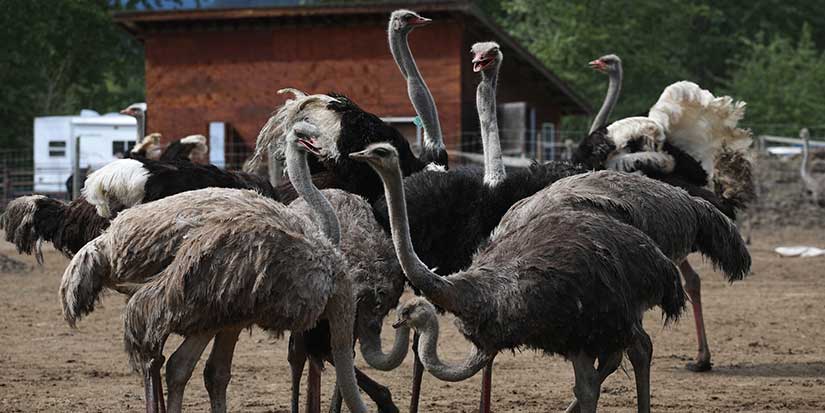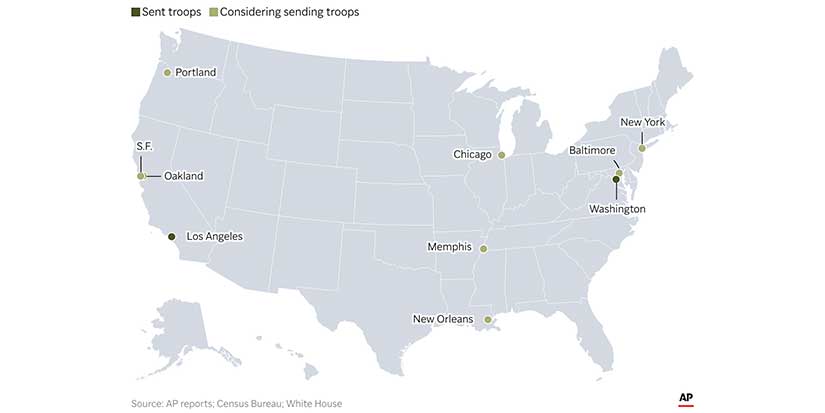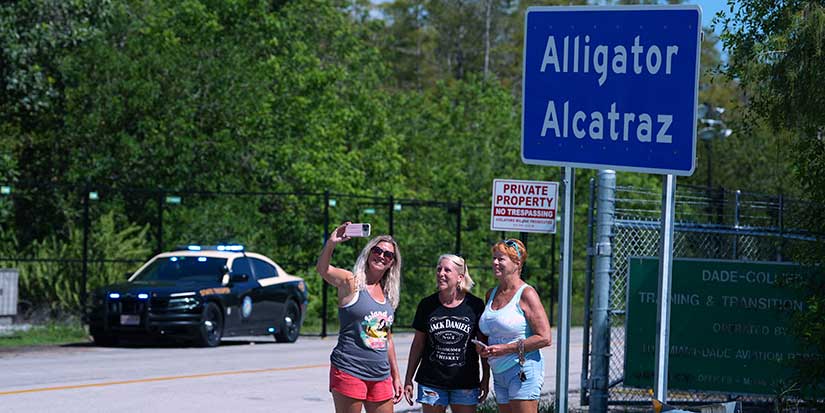Provincial News
Logging firm wins injunction to halt Walbran Valley blockade on Vancouver Island
Published 11:21 PDT, Fri September 12, 2025
Last Updated: 12:48 PDT, Fri September 12, 2025
—
The B.C. Supreme Court has granted an injunction to a forestry company to halt a blockade against old-growth logging in the Walbran Valley on Vancouver Island, with the judge saying it "appears clear" the protesters' action is criminal.
B.C. Supreme Court Justice Amy Francis said Friday that protests "are part of a healthy democracy. Criminal conduct is not."
Tsawak-qin Forestry Inc., which is co-owned by Western Forest Products and the Huu-ay-aht First Nations, had sought an end to the blockade outside Port Renfrew, B.C., that began in late August.
Tsawak-qin Forestry filed a lawsuit against the blockaders last week, claiming the "unknown individuals" have prevented the company and its contractors from accessing the site by erecting structures and "a large wooden sculpture" to block a forest service road.
Francis said that the protesters appear "highly organized" and ruled they have illegally obstructed the company's lawful access to the area and cannot "impose their will" by force.
Francis said social media evidence showed the protesters to be the same group involved in the blockade at Fairy Creek, "which was the subject matter of considerable litigation before this court in recent years."
"The social media accounts used to fundraise and recruit protesters are the same social media accounts that were used to fundraise and recruit protesters for the Ferry Creek blockade," Francis said.
"Many of the posts refer to the current blockade as a continuation of those blockades."
Francis said the company has valued the timber in the disputed area at $3 million, and it will suffer economic loss if it is unable to harvest it and collect revenue that is shared with the province and the Pacheedaht First Nation, upon whose territory the timber sits.
The company said there was "urgency" for an injunction so it could meet its yearly cut allowance and prepare for winter.
Francis said the law around granting injunctions is well established, and "it appears clear that the defendants' actions are criminal in nature."
She said there was "no controversy" that the company has permits and is lawfully entitled to log the blockaded area, and losing revenue would amount to irreparable harm because it could never be "made whole" with a damages award that the defendants would be unable to pay.
"There is no reasonable prospect that Tsawak-qin could recover damages," she said. "The defendants are mostly anonymous, and the potential damages are likely beyond the capacity of most individuals to satisfy."
Only one protester responded to the company's lawsuit, a Pacheedaht elder named Bill Jones.
Francis said Jones' lawyer urged her "to consider the broader public interest" in preserving old growth forests and battling climate change.
"He has submitted evidence in support of his position that logging of the upper Walbran Valley will result in loss of old growth forest, biological diversity, and climate resilience," she said.
Francis, however, said the law is "conclusive" after the lengthy legal battle involving Fairy Creek and Teal Cedar, and reiterated the findings of the B.C. Court of Appeal in that case.
"This case is not about the wisdom of government forest policy. It is decidedly not about a court's views on whether and where old growth logging should occur in this province, even in the context of climate change," Francis said. "In an injunction application, those are matters outside the constitutional competence of the court."
Francis granted the injunction, but she said she was "very reluctant" to give police extra enforcement powers because of the "serious overreach" that occurred at Fairy Creek, which included completely blocking public roads.
"If enforcement becomes a problem, it is open to the plaintiff or the RCMP to come back to court to have the injunction varied," she said.
Jones' lawyer Ben Isitt said after the hearing that his client was disappointed that "the court continues to put disproportionate weight on the commercial interests of the private logging company and not put sufficient weight on impacts on him as an Indigenous person and impacts on the environment."
Seanna McConnell, chair of the Tsawak-qin board, said the company was pleased the court granted the injunction, and said the company has a "long track record" working with First Nations, including the Pacheedaht, which supports logging on its territory.
McConnell said the company has "a tall tree and a big tree preservation policy," of which the public is likely unaware.
"We have been working to try and engage with the protesters and the blockaders in recent weeks and despite repeated requests for them to allow us to pass through to the harvesting area, that was not approved," she said. "So, unfortunately, we had to take this step."
The Wilderness Committee says the valley in southern Vancouver Island is one of the most spectacular rainforests threatened by clearcut logging and "remains largely unprotected."
– Darryl Greer, The Canadian Press








































